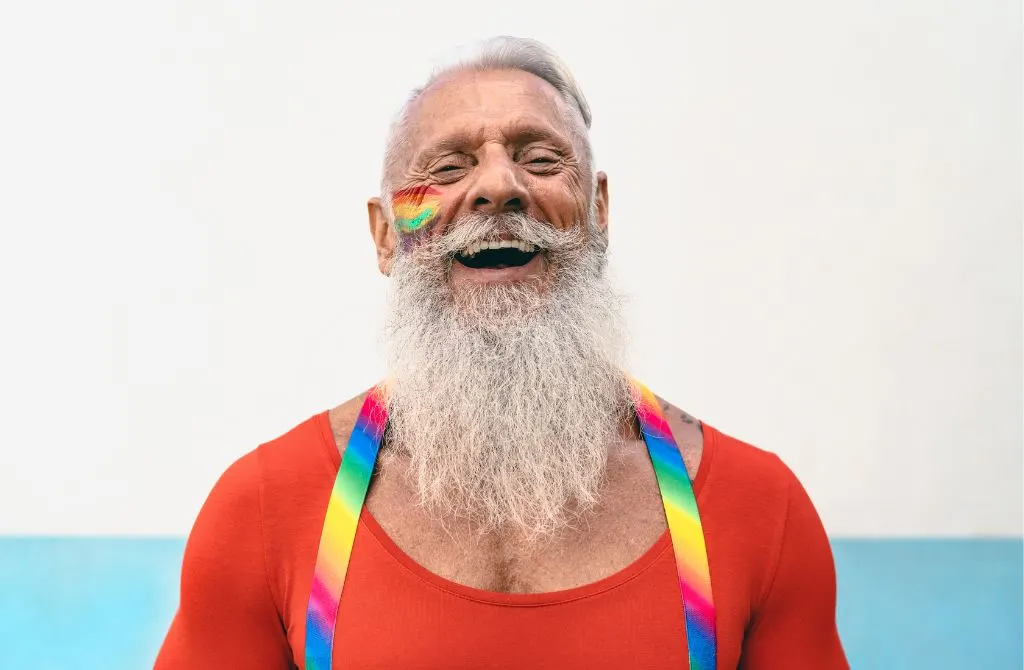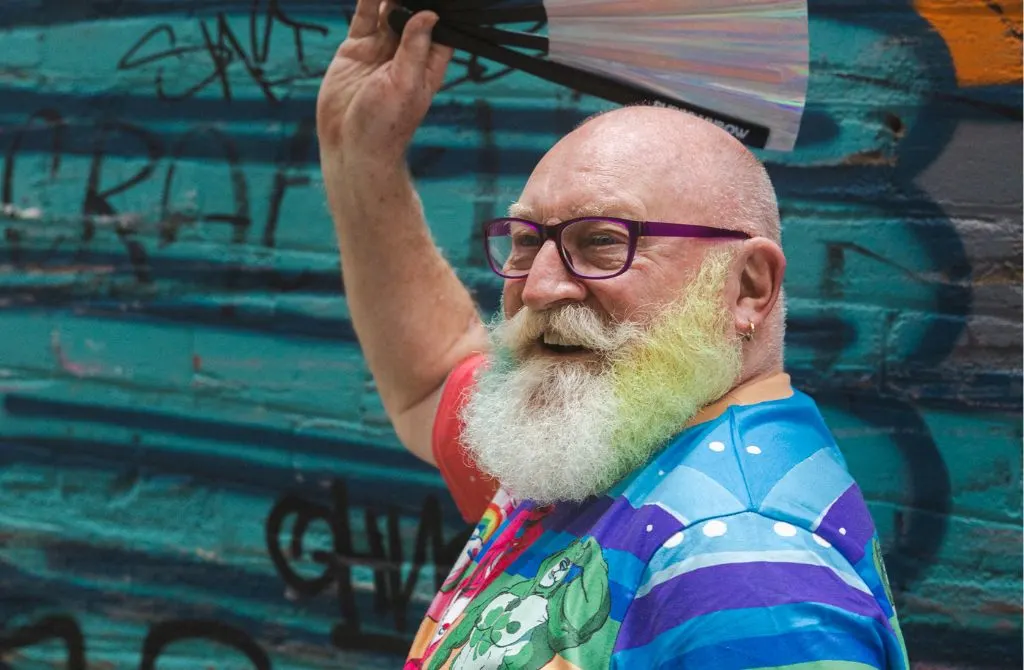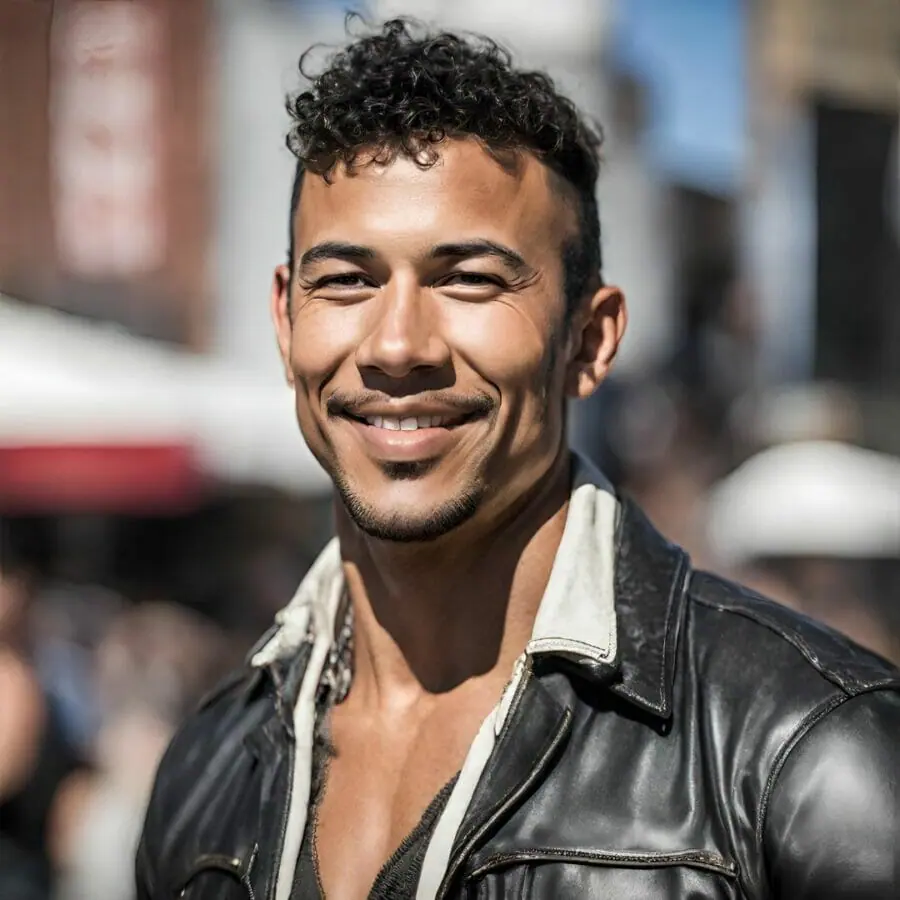Older gay men have always been treated with negative emotions like mockery and sometimes contempt. They have also been wrongly stereotyped by both the gay community and the broader public as effeminate men who are riddled with sexual diseases, especially AIDS.
This erroneous stereotype isn’t only unfortunate; it is also untrue. Older gay men, especially those in their fifties to the seventies, have lived through some of the most challenging times in the history of the homosexual movement, and surviving through that is enough reason for them to be celebrated. This is why we think it is a great idea to connect with older gay men in our society.
Apart from being a veritable sense of history, older gay men could provide helpful experiences for younger gay men and help young men who are still confused about their sexuality and coming out to family and friends. We will also talk about why we stop discriminating against them, the history of stigmatization, and why anyone could be attracted to an older gay man.
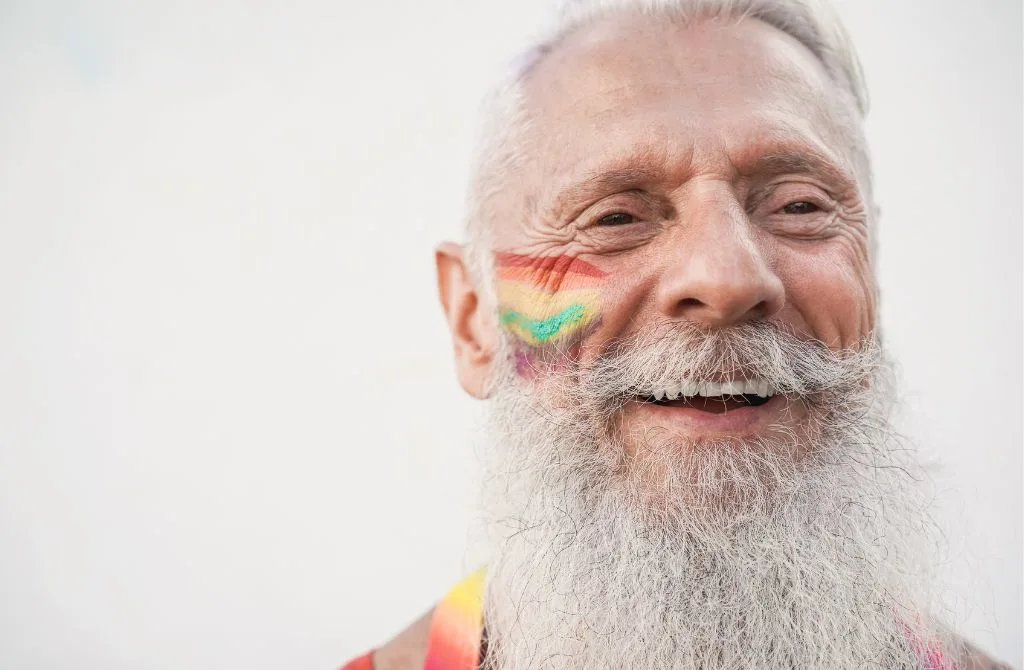
In this article we will cover...
The Past And History Of Discrimination Against Older Gay Men
Understanding past events gives us the ammunition to work in the present and forge the future. So we have decided to try to take a trip down history lane and highlight the discrimination suffered by gay men from the mid-twentieth century until the nineties.
While highlighting this discrimination, we are not in any way making light of the homophobia and discrimination still prevalent in society. We want a general understanding of what many older gay men went through.
Age Long Discrimination
To avoid confusion, when we talk about older gay men, we talk about gays fifty and older. This generation, usually known as baby boomers, is often derided as being out of touch with current realities and responsible for most of the problems millennials and Gen Zs face.
We agree that there might be some truth in this, but younger people will be surprised to learn that older gay men also have some grouse with their generation. While it would take stupidity of the highest order for anyone to use homophobic slurs like fag, dyke, fairy, or cocksucker, these were words the older generation had to face at the time.
In fact, same-sex relations were criminalized in a country like the UK until about fifty-six years ago. In the US, it wasn’t until 1980 that twelve states repealed the law criminalizing sodomy.
This meant gay men entered the seventies with much discrimination and hatred from the larger society without legal recourse. It also didn’t help that while gay men were battling with acceptance issues in the early seventies, a deadly danger was lurking in the corner.
AIDS Pandemic
By the late seventies, the world, especially American society, was shedding this prudish culture for a more sexually liberated one. Gay men all over the country weren’t left out. Unfortunately, the HIV bug was going to the US, spreading like wildfire among American gay men.
The fact that the virus spread faster through anal sex than vaginal sex didn’t seem to help matters. However, some primary reason the HIV epidemic spread among gay men was ignorance and a lack of concern by the government.
By the early eighties, many gay men had lost their friends and lovers to full-blown AIDS, yet there seemed to be no end in sight or explicit information about the virus.
In a particular emotional TV interview on Today’s Show in 1983, gay activist Larry Kramer asked the host, Jane Pauley, if she knew how it felt to see twenty-one of his friends die in eighteen months. Of course, Pauley didn’t know how it felt because she hadn’t experienced it firsthand, but Kramer had.
Let that sink in for a moment. Everywhere worldwide, the gay and LGBTQ+ community is relatively close-knit, just like in the eighties. So imagine in a society where everyone knew everyone losing twenty-one members to the same sickness in a little over eighteen months.
This was a sickness of epidemic proportions sweeping through the gay community. Yet, the larger society was still dragging its feet because AIDS seemed to affect only homosexuals.
It didn’t also help that the two sections mainly affected were gays and drug users (especially those sharing injects while doing drugs like heroin). There was an intersection between these groups of people, which aided the virus’s spread. Around this time, when the AIDS epidemic was killing the gay community, another problem was brewing.
The Backlash From The Moral Majority
There was a group that spouted the idea they were the majority. They started working towards undoing all the work the early gay rights activists had done since the sixties. These people, led by the late Baptist pastor, Reverend Jerry Falwell, pushed back on gay rights by saying the government should side with the moral majority instead of the gay minority.
In a time that might seem almost unimaginable now, public figures were once prominently featured on television, making derogatory remarks about gay individuals and advocating for governmental actions to shield children from homosexuality as if it were a contagion. Among such individuals was a Christian singer and antigay activist, known for her vocal opposition to gay rights.
She participated in events aimed at curbing the rights of the LGBTQ+ community, a stark contrast to today’s climate where celebrities face significant backlash for insensitive remarks, exemplified by incidents like an A-list comedian stepping down from a prestigious hosting gig due to a controversial gay joke. This shift highlights a considerable change in societal attitudes, from a time when outspoken homophobia faced little to no public challenge, to a present where respect and equality for gay older men and the broader LGBTQ+ community are increasingly demanded and upheld.
I Don’t Have It, Do You?
In reality, this group called the Moral Majority gained so much momentum, they succeeded in getting Ronald Reagan, a believer in their cause, elected. Reagan’s election halted the gains the gay rights activists had fought for, and the AIDS epidemic continued to be primarily considered a punishment for being gay. Some states even repealed the law decriminalizing sodomy bans.
We want you to understand that Reagan was president from 1981-1989. Late in the twentieth century, the number one country in the world in terms of citizens’ rights made it a crime to have sex with the man you loved. This was the sort of atmosphere these older gay men grew up in.
In an infamous moment, Reagan’s press secretary, Larry Speakes, laughed during a press conference. The reason for the laugh? He had been asked whether President Reagan was tracking the spread of AIDS. The person who had asked the question even cracked a joke, calling AIDS the gay plague to the amusement of some people there.
Speakes had quipped, “I don’t have it, do you?”
ACT UP
Despite the government’s reluctance, the human immunodeficiency virus was discovered in 1984, and in 1985 President Reagan finally uttered the word AIDS. However, it had been ravaging since the late seventies. These small steps were ultimately ineffective as the promised vaccines remained a mirage, and the virus kept decimating the gay community.
Forced to do something, in 1987, gay activists came together in New York City to form ACT UP (AIDS Coalition to Unleash Power). The pressure group greatly revolutionized AIDS research, government response, and public awareness of the disease. No more was AIDS disease for the gay community, but a national emergency that required everyone to work towards the same goal.
This is the life that most of the men went through as young men. Being vilified for their way of life and treated like second-class citizens in their own country for that way of life. ACT UP used every legal option to raise awareness about AIDS, including going against the government narrative most times. For example, they went against the Food and Drugs Agency (FDA) when they realized the agency was creating unnecessary bottlenecks for AIDS drugs and vaccines.
By 1995, less than a decade into the twenty-first century, AIDS had been declared the single greatest killer of American men aged between 25 and 44. Those in the lower range of that bracket are aged fifty-three now, putting them in the older gay men category.
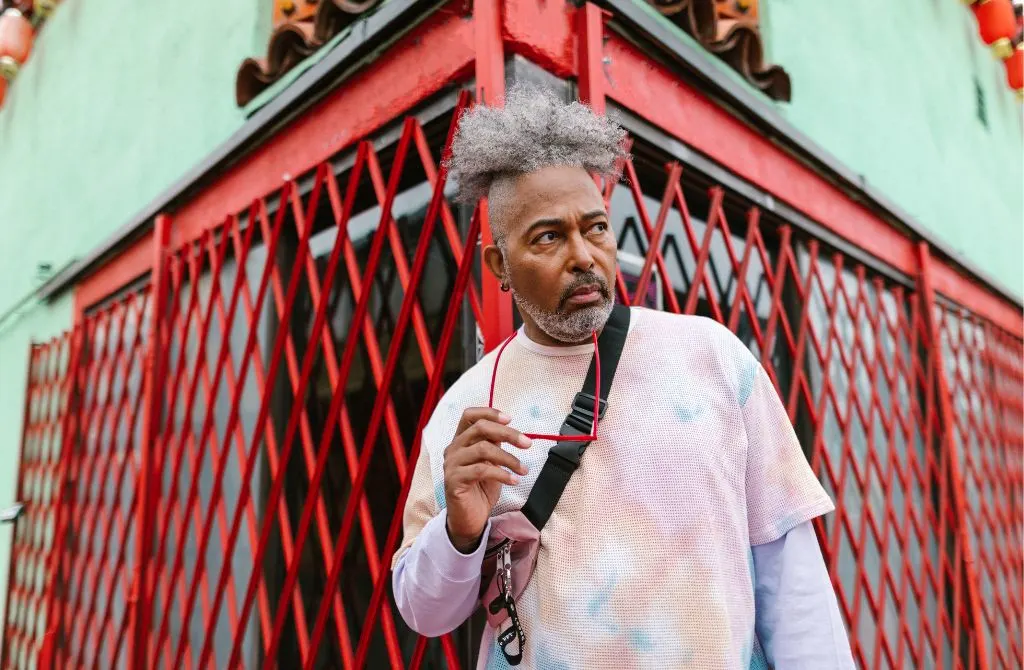
What’s Happening To Such Gay Older Men Now?
Many of these warriors who put their lives, resources, and well-being on the line to fight for a society where everyone is treated equally regardless of sexual orientation face discrimination of another kind. While the larger society is more tolerant of the LGBTQ+ community, younger gays look down on the older ones because of a shift in mindset.
Generally, there’s a shift in the outlook of the younger generation compared to those of the older generation. But just like we respect veterans who risked their lives to ensure our freedoms weren’t encroached on, we should also offer some form of respect to older gay men because their sacrifice ensures we have the freedoms we enjoy.
We have a lot to do before we have a world where homosexuality is accepted in all corners of the globe. But we can achieve that dream if we look to those who have fought before and improve on their legacy.
Discrimination Against Older Men and How to Stop It
HIV Stigmatization
One of the most prominent forms of discrimination older gay men face is HIV stigmatization. All older gays lived through the AIDS epidemic, and most lost someone close to them then. For those older gays living with the virus, they face the constant fear of being stigmatized by everyone, including their comrades in the gay community.
This is probably why many older men don’t disclose their HIV status to casual acquaintances and lovers. It’s hard to blame them because they have endured decades of insult, isolation, and abuse.
Unfortunately, an even better understanding hasn’t done much to change public perception about those living with the virus, and the mindset still remains in some quarters that HIV is a predominantly gay ailment. Even gay men who were supposed to know better also contribute to this stigmatization.
Ageism
Besides some cars, wine, and furniture, people rarely look fondly at old things or people. There’s been a culture of ageism permeating society, and nobody raises an eyebrow when all the world’s problems are laid at the feet of the older generation.
Rising inflation and the price of everything? Blame it on the boomers. Apart from the general ageism in society, there’s a more subtle one within the gay community. The picture of the perfect gay man is a young man with perfect abs and glowing skin that radiates youth. The older gay men who paved the way for the young ones are kept at the back, away from prying eyes.
The subtle ageism culture within the gay community is sad because while the young gay might be the picture of masculinity, the older gay represents a wiser classier man. Both of them working together provides a better-looking and wholesome gay community.
Homophobia and Homonegativity
In recent times, people have been careful about what they say and do because there are repercussions for their actions. When the older gay men were younger, homophobia was so pronounced that many stayed in the closet until they were in their late thirties or forties.
It was so bad that openly homosexual and bisexual Americans couldn’t join the military until 2011 when the Don’t Ask, Don’t Tell policy was rescinded. So facing that level of homophobia and homonegativity meant older gay men couldn’t enjoy their lives in the open like we can now. Many studies have shown that a combination of homophobia and a lack of enlightenment about mental health affected many older gay men.
People in Europe and the US have it better. Imagine living in some places in Africa or Asia where homosexuality is still a crime. An older gay man must have lived about thirty years of adult life hiding who they are from the world. Battling with guilt because they cannot live the authentic versions of their lives.
How Help Stop Discrimination Against Older Gay Men
The primary way to counter subtle and overt stigmatization against older gay men is to identify these factors of stigmatization and work on correcting them. Seek out older gay men and try to build a connection with them.
When we say connect, it doesn’t necessarily mean you should have a romantic relationship with them. Befriending them and listening to their stories, letting them know they are valued, makes them feel included.

Reasons To Connect With An Older Gay Man
Have you ever considered a relationship with an older gay man or wondered if it would be worthwhile? Well, there are worse than connecting with an older man. Here are some reasons.
Stability and Lower Expectations
In most cases, when you are relationship with an older gay man, the expectations to impress your older partner are lower than when both of you are the same age. Most times, these older gay men are at the peak of their careers and at the stages of their lives when competing with their partners isn’t as crucial as with younger men.
They usually want to have fun and enjoy life. The lower expectations mean less strain on the relationship and more stability. Older gay men have also gone through their wild phase. They are more interested in a sedate and more fulfilling relationship. While there’s nothing wrong with partying (we love to party as the next man), there are young men who prefer a more sedate pace with little competition. For these kinds of men, dating an older gay man might be the solution.
Maturity and Experience
Old age isn’t a prerequisite for maturity, as some wise old heads are sitting on the necks of young men. However, these are more of an exception than a rule. Older gay men have more experience with issues like homophobia, coming out of the closet, relating to antagonistic relations, and other aspects of gay culture.
So connecting with an older gay man could be an educational experience for the younger man. Younger men were interested in having a firsthand experience of life during the seventies and eighties when homophobia and AIDS ravaged the country. They will also highlight the aspects of gay culture back in the day.
Also, while this might sound stereotypical, older gay men are more patient lovers due to experience garnered over the ways. For a neophyte gay young man, connecting with an older man could help ease you into the gay culture and the aspects of top, bottom and sides.
More Selfless Than Younger Men
Don’t get us wrong. We know that humans are inherently selfish. When we grow older, we realize that most of the things we deem life and death are not as important as we thought. Most of us don’t get to that point until we reach our forties or late thirties.
This is another reason why connecting with an older gay man is so great.
Older gay men usually understand the value of relationships and tend to nurture them better than younger men. When you date an older man, you understand what it means to be selfless, and you tend to enjoy a relationship when your partner puts you first.
Large Social Network
The gay community is particularly tightly knit, and they usually come through for one of their own. For a young man connecting with an older gay man could give you a heads up in your career, as they have an extensive social network and social capital to ease through typical bottlenecks.
Let’s be realistic. With the level of competition nowadays, everyone needs all the help they can get. So connecting with someone who knows everyone could give your career the boost it needs.
Besides career progression, connecting someone with an extensive social network improves your social circles. You could make friends with people you might not have met within your own social circle. Increasing and improving your social circle means you can build your social collateral and cash in favours when needed. Relationships are meant to improve us, and one of the ways we can improve ourselves is by expanding our social network.
More Generous
We have stated that older gay men are usually at the upper rungs of their careers, which means they are usually well-to-do. Just like an older man dating a far younger woman is usually generous, it is with an older gay man towards their younger love interest.
Everyone wants to be spoiled (I can see you rolling your eyes), and one way to live a pampered life is to connect with or date an older man. You could go on an all-expense trip around the world, attend some of the best circuit parties in the world, and have nice things all on the bill of your older boyfriend.
Apart from material things, older gay men are also more generous lovers. They understand the art of giving pleasure to their partners and taking their time to achieve mutual pleasure. They understand that sex is usually a marathon and not a sprint. Then there’s the matter of generosity with their time. They will take time out of their busy schedules to listen to your fears, aspirations, joys, and sadness.
A Different Mindset
Older gay men grew up in a different time, and their views on life are usually different. We understand that different doesn’t mean wrong or right but an alternative view to how we think. When facing a problem and needing a fresh mind, why not look for someone with a different mindset.
Looking at the problem differently could result in a solution we didn’t consider. So connecting with an older man with a different way of viewing issues and solving problems will help you grow into a better man.
Final Thoughts On The Importance Of Connecting With Gay Older Men
Older gay men shouldn’t be derided for their age once you understand what they experienced when they were young gay men. They faced the same things we are facing, even worse if you consider the Moral Majority and the government’s ineptitude regarding AIDS research and education. Yet they overcame those odds to become what they currently are.
You can appreciate where they are when you understand what they have been through. Appreciating these older gay men is the first step in ending their stigmatization. Also, look out for connecting with an older gay man. Tell us how much you enjoyed the experience.
